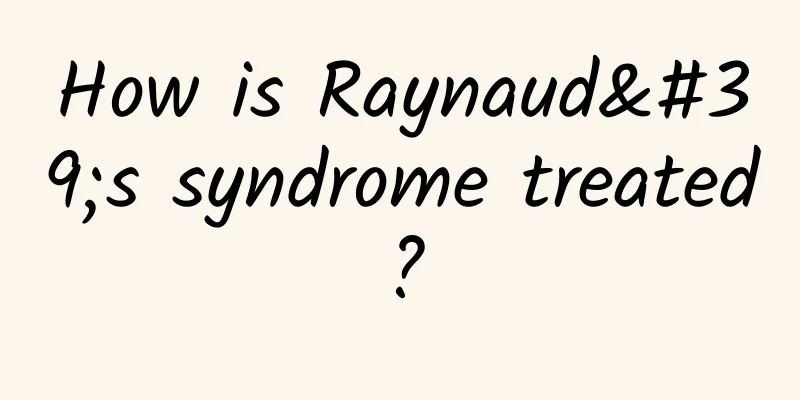Can stomach problems cause dizziness?

|
Gastric disease is a relatively common disease. There are many types of gastric diseases. When gastric disease occurs, it will cause a variety of symptoms. Sometimes it will also cause dizziness, fatigue, and fever. Of course, the most common are some symptoms of the digestive system, such as abdominal pain, diarrhea, abdominal distension and other symptoms. When gastric disease occurs, it should be diagnosed in time and then treated symptomatically. Clinical manifestations 1. Acute gastritis The onset is acute and the clinical symptoms vary in severity. The most common is acute simple gastritis, the main symptoms of which are upper abdominal pain, abdominal distension, belching, loss of appetite, nausea, vomiting, etc. Those caused by Salmonella or Staphylococcus aureus toxins are often accompanied by diarrhea, fever, and even dehydration and shock. Acute erosive hemorrhagic gastritis may cause vomiting of blood and black stools. The main clinical manifestations of acute suppurative gastritis are systemic sepsis and acute peritonitis. The symptoms of acute corrosive gastritis are the most obvious, manifested as severe pain in the mouth, throat, behind the sternum, and upper abdomen after swallowing corrosives, accompanied by nausea, vomiting, and even vomiting blood. The mucous membranes of the lips, mouth, and throat can produce caustic scabs of different colors, which help to identify various corrosive agents. 2. Chronic gastritis The clinical manifestations of different types of gastritis may vary, but the symptoms lack specificity, and the severity is often inconsistent with the severity of the lesion. Some patients may be asymptomatic. (1) Upper abdominal pain or discomfort Most gastritis patients experience upper abdominal pain or discomfort. Most upper abdominal pain is irregular and has nothing to do with diet. The pain is generally diffuse upper abdominal burning pain, dull pain, bloating, etc. (2) Upper abdominal distension and early satiety Some patients experience abdominal distension, especially a noticeable feeling of fullness after a meal. It is often caused by food retention in the stomach, delayed emptying, and indigestion. Early satiety refers to a feeling of fullness soon after eating despite having a clear sense of hunger, and a significant reduction in food intake. (3) Belching, acid reflux, and nausea Belching indicates an increase in gas in the stomach, which is discharged through the esophagus, temporarily relieving upper abdominal fullness. Acid reflux is caused by increased gastric acid secretion. (4) Other severe atrophic gastritis patients may have weight loss, glossitis, and diarrhea; autoimmune gastritis patients may have anemia. diagnosis Acute gastritis is not difficult to diagnose based on medical history and symptoms. Care should be taken to differentiate it from early-stage acute appendicitis, acute cholecystitis, and acute pancreatitis. The diagnosis of acute erosive hemorrhagic gastritis requires emergency gastroscopy. The diagnosis of acute erosive gastritis is based primarily on a history of ingestion of caustic agents. |
<<: How to make Sichuan Fritillary Lemon Tangerine Peel Paste
>>: Can I eat fish if I take Chinese medicine for stomach problems?
Recommend
Treatment course of Shenmai Injection Solution
Shenmai injection is a relatively common injectab...
Contraindications to bone marrow puncture
We may encounter bone marrow puncture in our live...
What are the symptoms of rough gallbladder
Roughness of the gallbladder is the imaging manif...
The efficacy, effects and contraindications of Chinese herbal medicine Artemisia capillaris
Artemisia capillaris, also known as Yinchen or wh...
What are the effects and functions of golden cherry?
Rosa rugosa, also known as sea buckthorn, is quit...
Best bowel movement schedule of the day
It is normal for people to defecate once or twice...
What are the CT manifestations of hepatic hemangioma?
Although hepatic hemangioma is a benign disease, ...
Can I take anti-inflammatory drugs if my white blood cell count is low?
Low white blood cell count is clinically called l...
Feeling of fluid flowing in the head
The brain can be said to directly control the hea...
What causes swelling and pain at the anus?
If you have indigestion or are anxious and get an...
How walnuts can enlarge breasts, dietary methods for breast enlargement
Having firm breasts is the goal of every woman, w...
How much saffron should be soaked in water for one drink?
Drinking saffron tea is a very simple and conveni...
What to do if your skin becomes loose after losing weight? What should I pay attention to?
After successfully losing weight, although I have...
Why does chest pain occur when swallowing saliva?
Chest pain when swallowing saliva is a relatively...
The efficacy, function and edible method of palm flower
Palm flowers can supplement nutrients, and can al...









